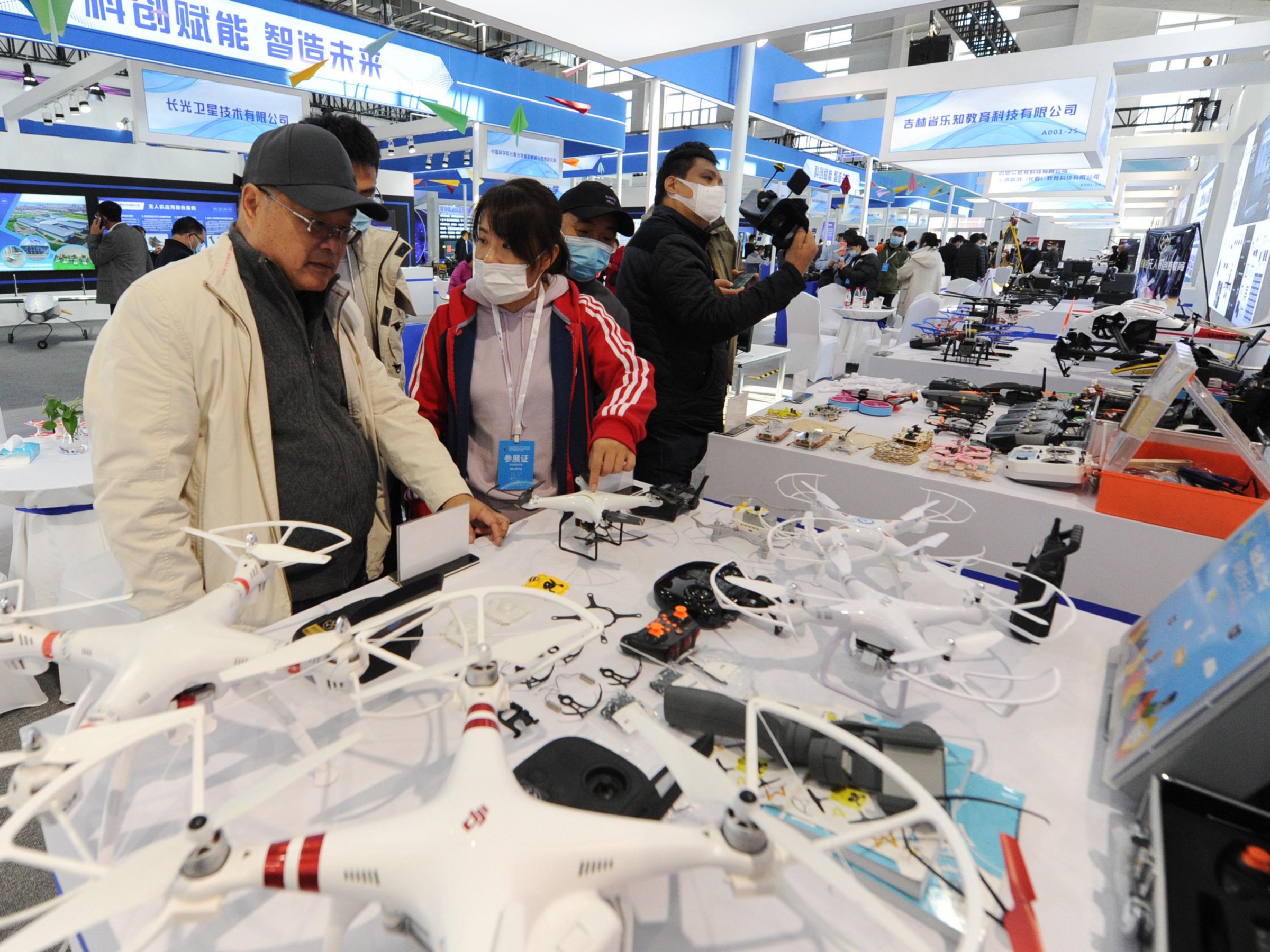
The U.S. Commerce Department announced it’s blacklisting Semiconductor Manufacturing International Corp., drone maker SZ DJI Technology Co. and more than 60 other Chinese companies “to protect U.S. national security.”
“This action stems from China’s military-civil fusion doctrine and evidence of activities between SMIC and entities of concern in the Chinese military industrial complex,” the Commerce Department said in a statement.
Commerce Secretary Wilbur Ross confirmed the move in a Friday morning interview with Fox Business. It was reported first by Reuters overnight. Shares in SMIC, China’s top chipmaker, slid 5.2% Friday in Hong Kong on the news.
Other affected Chinese entities include those “that enable human rights abuses, entities that supported the militarization and unlawful maritime claims in the South China Sea, entities that acquired U.S.-origin items in support of the People’s Liberation Army’s programs, and entities and persons that engaged in the theft of U.S. trade secrets,” according to the U.S. government statement.
“There’s plenty in the open press about how DJI has been part of the surveillance state and overall suppression within China,” a senior Commerce official said.
The majority of the newly banned companies are Chinese and will join the likes of Huawei Technologies Co. on a list that denies them access to U.S. technology from software to circuitry.
Companies including Huawei and SMIC have been caught in the middle of worsening tensions between the world’s two largest economies, which have clashed on issues from trade to the pandemic.
President Donald Trump had been widely expected to level more sanctions against China’s national champions before Joe Biden formally took office.
Chinese Foreign Minister Wang Yi called the U.S.’s expansive use of sanctions against Chinese companies “unacceptable” in a video address to the Asia Society on Friday. He urged the U.S. to stop “over stretching the notion of national security,” and “the arbitrary suppression of Chinese companies.”
Shanghai-based SMIC, a supplier to Qualcomm Inc. and Broadcom Inc., lies at the heart of Beijing’s intention to build a world-class semiconductor industry and wean itself from reliance on American technology. Washington in turn views China’s ascendancy and its ambitions to dominate spheres of technology as a potential geopolitical threat. A blacklisting threatens to cripple SMIC’s longer-term ambitions by depriving it of crucial gear.
For U.S. companies exporting items to SMIC for making 10-nanometer or more advanced chips, their applications for a license will face “presumption of denial,” while items for producing chips more mature than 10-nanometer will be reviewed on a case by case basis, according to a senior Commerce official.
Companies exporting parts made outside of the U.S. to SMIC will face certain restrictions depending on how much of their technologies are U.S.-origin, and Washington is talking to “like-minded governments” about forming a unified approach to the Chinese chipmaker, senior Commerce officials said. They declined to give details on which governments the U.S. is talking to and potential implications on non-U.S. companies like ASMl Holding NV and Tokyo Electron Ltd. that also supply equipment for making advanced chips.
In response to the widening U.S. crackdown, China is planning to provide broad support for so-called third-generation semiconductors in its next five-year plan to increase domestic self-sufficiency in chip manufacturing, people with knowledge of the matter have said. SMIC, backed by the China Integrated Circuit Industry Investment Fund as well as Singapore’s sovereign fund GIC Pte and the Abu Dhabi Investment Authority, is expected to play a central role in that overall effort.
SMIC representatives didn’t respond to requests for comment. The company had already been laboring under similar, less severe curbs after the Commerce Department in September placed it on a separate export restrictions list, accusing SMIC of supplying the military. Those sanctions took a toll on shares of the company, whose co-CEO Liang Mong Song this week unexpectedly resigned, triggering another selloff.
—With assistance from Jing Li and Peter Martin.
More Must-Reads from TIME
- Donald Trump Is TIME's 2024 Person of the Year
- Why We Chose Trump as Person of the Year
- Is Intermittent Fasting Good or Bad for You?
- The 100 Must-Read Books of 2024
- The 20 Best Christmas TV Episodes
- Column: If Optimism Feels Ridiculous Now, Try Hope
- The Future of Climate Action Is Trade Policy
- Merle Bombardieri Is Helping People Make the Baby Decision
Contact us at letters@time.com